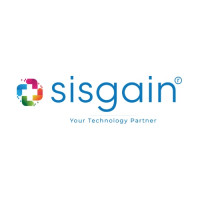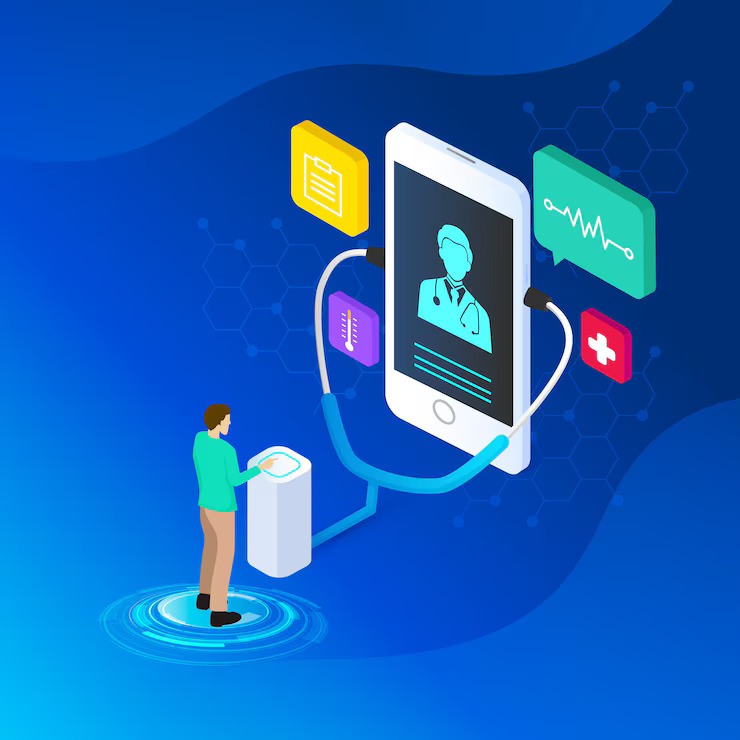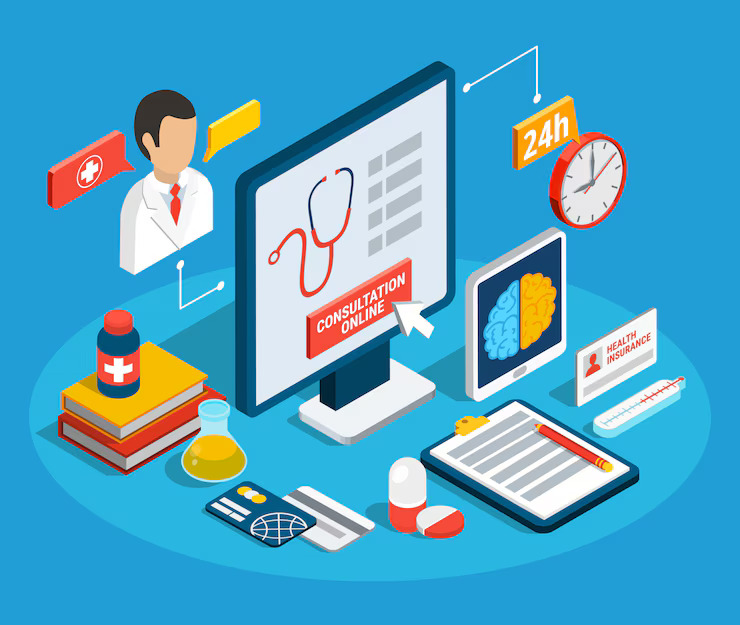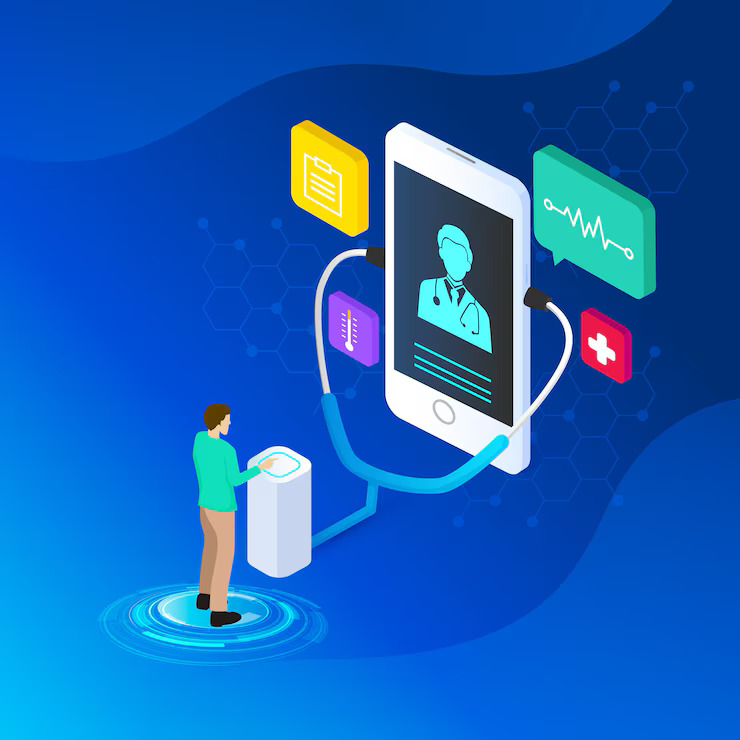Next-Gen Hospital Management System Software You Need in 2025

In 2025, healthcare is at a tipping point. Imagine a bustling hospital where patient records are scattered, appointments are missed due to manual scheduling errors, and compliance risks loom like storm clouds. This was the reality for many facilities a decade ago, but today, advanced Hospital Management System (HMS) software is revolutionizing how healthcare providers operate. With patient expectations soaring and regulations tightening, outdated systems are no longer an option. Next-gen HMS solutions promise streamlined operations, enhanced patient care, and significant cost savings. In this article, we’ll explore why these systems are critical for healthcare providers in 2025, diving into their features, benefits, trends, and top solutions to help you stay ahead in this fast-evolving landscape. Ready to transform your facility? Let’s dive in.
What is a Hospital Management System and Why It Matters in 2025
A Hospital Management System (HMS) is a comprehensive software platform designed to integrate and automate the core functions of a healthcare facility, from patient registration to billing and inventory management. In 2025, the role of HMS has become indispensable as healthcare providers face mounting pressures to deliver high-quality care while managing complex operations. The global healthcare IT market is projected to reach $974 billion by 2027, according to Grand View Research, with HMS solutions at the forefront of this growth. These systems address modern challenges like data security, patient flow, and regulatory compliance, ensuring hospitals and clinics operate efficiently. By replacing outdated manual processes, HMS empowers providers to focus on what matters most: patient outcomes. Whether you manage a large hospital or a small clinic, adopting an HMS in 2025 is not just a technological upgrade—it’s a strategic necessity to stay competitive and compliant in a rapidly digitizing world.
The Evolution of HMS
The journey of Hospital Management System software began with rudimentary paper-based systems that were prone to errors and inefficiencies. By the early 2000s, basic digital solutions emerged, but they were often siloed, lacking integration across departments. Today, next-gen HMS platforms leverage cloud technology, artificial intelligence (AI), and interoperability to create seamless ecosystems. These advancements allow real-time data sharing, remote access, and scalability, making them ideal for facilities of all sizes. For instance, cloud-based HMS solutions have reduced IT infrastructure costs by up to 30%, according to a Deloitte study, enabling even small clinics to adopt cutting-edge technology. This evolution reflects the growing complexity of healthcare demands, positioning HMS as a cornerstone of modern medical operations.
Impact on Healthcare Providers
The impact of a Hospital Management System on healthcare providers is profound. By automating routine tasks like appointment scheduling and billing, HMS reduces administrative burdens, allowing staff to prioritize patient care. For example, a hospital using an HMS can cut patient check-in times by 50%, improving both staff efficiency and patient satisfaction. Additionally, HMS enhances data accuracy, reducing errors that could lead to costly compliance violations. With regulations like HIPAA and GDPR becoming stricter, an HMS ensures secure data handling, safeguarding both patients and providers. Ultimately, these systems empower healthcare facilities to deliver faster, safer, and more personalized care, fostering trust and loyalty among patients in an increasingly competitive industry.
Key Features of Next-Gen Healthcare Management Systems in 2025
As healthcare evolves, so do the tools that power it. A healthcare management system in 2025 is more than just software—it’s a transformative force that integrates cutting-edge technology to streamline operations and elevate patient care. These systems are designed to meet the unique needs of modern healthcare facilities, from large hospitals to specialized clinics. By incorporating advanced features like AI, cloud infrastructure, and patient engagement tools, next-gen systems ensure providers stay ahead of the curve. Below, we explore the must-have features that define a healthcare management system in 2025, ensuring your facility is equipped to handle the demands of a digital-first healthcare landscape.
AI-Powered Decision Support
Artificial intelligence is reshaping healthcare, and healthcare management systems are no exception. AI-powered decision support tools analyze vast datasets to provide actionable insights, such as predicting patient admission trends or identifying high-risk patients. For instance, AI can flag potential diagnostic errors by cross-referencing patient data with clinical guidelines, reducing misdiagnoses by up to 20%, according to a 2024 study by McKinsey. These tools also optimize resource allocation, ensuring staff and equipment are used efficiently. By embedding AI into daily operations, healthcare providers can make faster, data-driven decisions, improving both clinical outcomes and operational efficiency in 2025’s fast-paced environment.
Scalability for Growing Facilities
Scalability is a hallmark of next-gen healthcare management systems, particularly those built on cloud infrastructure. Unlike traditional on-premises systems, cloud-based solutions allow facilities to expand without significant hardware investments. For example, a multi-location hospital network can centralize data across sites, ensuring seamless access for staff and patients. Cloud systems also offer cost-effective scalability, with 70% of healthcare providers reporting reduced IT costs after adoption, per a Gartner report. This flexibility is critical for growing facilities, enabling them to adapt to increasing patient volumes or new regulatory requirements without disrupting operations, making cloud-based systems a must-have in 2025.
Patient-Centric Features
Patient expectations are higher than ever, and healthcare management systems are rising to the challenge with robust patient engagement tools. These include patient portals for booking appointments, accessing medical records, and communicating with providers. In 2025, systems with integrated telemedicine capabilities enable virtual consultations, while IoMT (Internet of Medical Things) support connects wearables for real-time health monitoring. Such features improve patient satisfaction—studies show 80% of patients prefer providers with accessible digital tools. By fostering seamless communication and personalized care, these systems strengthen patient loyalty, making them a critical component of modern healthcare delivery.
Top Benefits of Adopting a Healthcare Management System in 2025
Investing in a healthcare management system is a game-changer for healthcare providers. These systems deliver measurable benefits that enhance every facet of a facility’s operations, from patient care to financial performance. In 2025, as healthcare becomes increasingly complex, the advantages of adopting a robust HMS are undeniable. Below, we outline the top benefits that make these systems indispensable, supported by real-world impacts and data-driven insights to help you understand why now is the time to upgrade.
Improved Patient Care
A healthcare management system enhances patient care by providing instant access to comprehensive medical records, reducing errors, and enabling personalized treatment plans. For example, integrated EHR systems ensure clinicians have real-time data, cutting diagnostic delays by 30%, according to a 2024 Healthcare IT News report. Automated alerts for medication interactions or follow-up reminders further improve outcomes. By streamlining workflows, these systems allow healthcare professionals to spend more time with patients, fostering trust and improving satisfaction. In an era where patient-centered care is paramount, an HMS ensures your facility delivers high-quality, efficient, and tailored healthcare services.
Operational Efficiency
Efficiency is a cornerstone of modern healthcare, and healthcare management systems excel at automating time-consuming tasks. From appointment scheduling to inventory tracking, these systems eliminate manual processes, saving hours of staff time. For instance, automated billing reduces claim denials by 25%, per a study by the American Hospital Association. Real-time dashboards also provide insights into bed occupancy or staff scheduling, optimizing resource use. By streamlining operations, an HMS allows facilities to handle higher patient volumes without compromising quality, making it an essential tool for busy hospitals and clinics in 2025.
Financial Impact
Cost savings are a significant driver for adopting a healthcare management system. By automating billing and reducing errors, these systems improve revenue cycle management, with hospitals reporting up to 15% revenue increases after implementation, per a Deloitte study. Additionally, cloud-based systems lower IT maintenance costs, while predictive analytics optimize inventory, preventing overstocking or shortages. These financial benefits are critical in an industry facing rising operational costs. By investing in an HMS, providers can achieve long-term savings while enhancing service delivery, ensuring financial sustainability in 2025’s competitive healthcare market.
Trends Shaping Clinic Information Systems in 2025
The future of healthcare lies in innovation, and clinic information systems are at the forefront of this transformation. In 2025, these systems are evolving to incorporate cutting-edge technologies that address the unique needs of clinics, from small practices to specialized facilities. Staying ahead of these trends ensures your clinic remains competitive and future-proof. Below, we explore the key trends shaping clinic information systems, offering insights into how they’re redefining healthcare delivery.
The Role of IoT in Clinics
The Internet of Medical Things (IoMT) is revolutionizing clinic information systems by enabling real-time patient monitoring through connected devices like wearables and sensors. In 2025, IoMT integration allows clinics to track vital signs remotely, alerting providers to anomalies before they escalate. For example, a diabetic patient’s glucose monitor can sync data directly to the system, enabling proactive interventions. A 2024 Frost & Sullivan report estimates IoMT adoption will grow by 26% annually, driven by its ability to improve patient outcomes. By incorporating IoT, clinics can offer personalized care while reducing hospital readmissions, making it a game-changer for modern practices.
AI and Automation Trends
Generative AI and automation are transforming clinic information systems by reducing administrative burdens and enhancing clinical decision-making. AI-powered tools can transcribe patient consultations, generate reports, or suggest treatment plans based on data analysis, saving clinicians up to 10 hours weekly, per a 2024 HIMSS study. Automation streamlines tasks like appointment reminders and billing, allowing small clinics with limited staff to operate efficiently. These trends are particularly impactful for clinics, where resources are often constrained. By leveraging AI and automation, clinic information systems empower providers to focus on patient care while maintaining operational excellence in 2025.
Choosing the Right Clinic Information System for Your Facility
Selecting the right clinic information system is a critical decision that can shape your facility’s future. With numerous options available, understanding your needs and evaluating key factors ensures you choose a system that aligns with your goals. In 2025, the right system should be user-friendly, scalable, and compliant with regulations. Below, we outline the key considerations to guide your decision-making process, helping you invest in a solution that drives efficiency and growth.
Cloud vs. On-Premises
When choosing a clinic information system, one of the first decisions is whether to opt for a cloud-based or on-premises solution. Cloud-based systems offer flexibility, remote access, and lower upfront costs, making them ideal for small to mid-sized clinics. They also provide automatic updates, ensuring compliance with evolving regulations. On-premises systems, while offering greater control, require significant hardware investments and IT maintenance. A 2024 Gartner survey found 65% of clinics prefer cloud solutions for their scalability. Assessing your budget, IT capabilities, and growth plans will help determine which option best suits your facility in 2025.
Vendor Evaluation Checklist
Evaluating vendors for a clinic information system requires a strategic approach. Key considerations include the system’s integration capabilities with existing tools like EHR or billing platforms, ensuring seamless workflows. Look for vendors with robust support, including 24/7 assistance and comprehensive training programs. Compliance with regulations like HIPAA is non-negotiable, as is data security through encryption and role-based access. Scalability and customization options are also critical for growing clinics. Requesting demos and checking user reviews can provide insights into usability. By using a checklist to assess vendors, you can ensure your chosen system meets both current and future needs.
Challenges and Solutions in Implementing a Hospital Management System
Implementing a Hospital Management System comes with challenges, but with the right strategies, these hurdles can be overcome. Understanding potential obstacles and their solutions ensures a smooth transition, maximizing the system’s benefits. Below, we explore common challenges and practical solutions to help healthcare providers successfully adopt an HMS in 2025.
Overcoming Cybersecurity Concerns
Cybersecurity is a top concern when implementing a Hospital Management System, as healthcare data breaches can cost millions and erode patient trust. In 2024, cyberattacks on healthcare facilities rose by 18%, per a Cybersecurity Ventures report. To mitigate risks, choose systems with robust encryption, multi-factor authentication, and regular security audits. Role-based access control (RBAC) ensures only authorized staff access sensitive data. Partnering with vendors who prioritize compliance with HIPAA and GDPR is essential. By investing in cybersecurity training for staff and selecting a secure HMS, providers can protect patient data and maintain trust in 2025.
Staff Training Strategies
Staff resistance and lack of training can hinder Hospital Management System adoption. Many employees fear change or lack the technical skills to use new systems. To address this, invest in comprehensive training programs tailored to different roles, such as clinicians and administrative staff. Interactive sessions, hands-on workshops, and ongoing support can boost confidence. For example, a 2024 case study of a mid-sized hospital showed a 40% increase in staff adoption after implementing a month-long training program. By fostering a culture of learning and providing accessible resources, facilities can ensure a smooth transition to an HMS, maximizing its benefits.
Top Hospital Management System Solutions to Watch in 2025
With numerous Hospital Management System options available, choosing the right one can be daunting. In 2025, several solutions stand out for their innovation, scalability, and alignment with industry trends. Below, we highlight top HMS platforms to watch, offering insights into their strengths and ideal use cases.
Epic Systems
Epic Systems is a leader in the Hospital Management System market, particularly for large hospitals and health systems. Known for its robust EHR integration and interoperability, Epic supports complex workflows, from patient care to revenue cycle management. Its AI-driven analytics provide predictive insights, helping facilities optimize resources. In 2024, Epic powered 29% of U.S. hospitals, per KLAS Research, due to its comprehensive features and scalability. While ideal for large facilities, its cost and complexity may be less suited for smaller clinics. Epic’s focus on compliance and patient engagement makes it a top choice for 2025.
LinkHMS
LinkHMS is a cloud-based Hospital Management System designed for small to mid-sized clinics and hospitals. Its SaaS model offers affordability and scalability, with features like telemedicine integration, patient portals, and automated billing. LinkHMS’s user-friendly interface and quick deployment make it ideal for facilities with limited IT resources. A 2024 review by Capterra praised its ease of use and robust support. With built-in compliance tools and AI-driven analytics, LinkHMS aligns with 2025 trends, making it a versatile option for clinics seeking cost-effective, future-proof solutions.
Final Thought Preparing for the Future with Next-Gen Clinic Information Systems
As healthcare evolves in 2025, adopting a next-gen clinic information system is no longer optional—it’s a necessity for delivering exceptional care and staying competitive. These systems streamline operations, enhance patient satisfaction, and ensure compliance with ever-tightening regulations. From AI-powered insights to cloud-based scalability, the features and trends shaping clinic information systems empower providers to meet modern challenges head-on. Now is the time to evaluate your current systems, explore top solutions like Epic or LinkHMS, and take action. Request a demo or consult with an HMS expert to find the perfect fit for your facility. What’s the biggest challenge your clinic faces with its current management system? Share your thoughts below and join the conversation on the future of healthcare.
Note: IndiBlogHub features both user-submitted and editorial content. We do not verify third-party contributions. Read our Disclaimer and Privacy Policyfor details.






